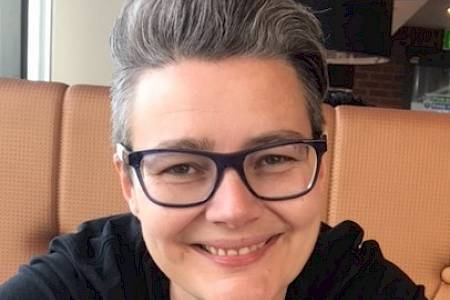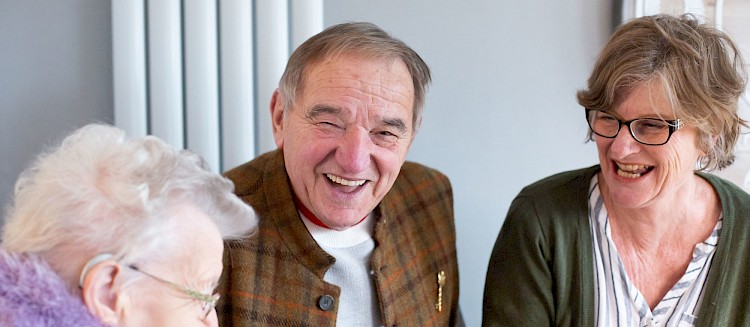When making friends was easy
Making new friends is such an easy task when we are young. Pushed by our innate instinct to form social bonds, while in kindergarten, whenever we met somebody we liked, simply asking “Would you be my friend?” was enough to be friends forever.
During teen years, despite the inner chaos of our changing lives and minds, people we met at school or in our sport groups easily became our soulmates, with whom we promised to be “best friends forever” – and we meant it.
A study from Kansas University estimated that we need to spend approximately 50 hours with a person in order to become casual friends and 200 hours to become close friends. For sure, we did have that much time during our childhood and young years; however, at one point we grew up, and the way we made connections changed with us.
It happens that we finish university, we find a job, or start a family, or buy a house, or all at once, and divide our attention between children, bills, pets, deadlines, laundry; friendship becomes a small part of our lives, often limited to a once-in-a-month drink with the old-time friends – at least, those still living around and not too busy to spend some time together.
Opportunities to make friends decrease over time
Life absorbs us so much, that social connections are reduced to a minimum, and sometimes that is not even perceived as a problem. We might even form some new connections, amongst our colleagues or the other parents at school, yet the intensity and depth of those relationships are not the same they used to be. There is no time to strengthen the bond, as we are constantly juggling with pieces of our lives.
Then, everything changes again: all of a sudden, we find ourselves in our 50s or 60s, retired or about to, with an empty nest and children living their own life, probably facing the loss of our parents, a divorce or just loneliness. At that point, the urge to have connections becomes stronger and stronger, but it making new ones seems too complicated.
As a matter of fact, as explained by clinical psychologist Linda Blair, in our early years we make friends based on a shared experience; as time passes by, those easy opportunities go away as the pillars of our experience are already set, so we need to find new options to make friends.
Social isolation increases the risk of an early death
However, despite it being complicated, making friends is not something we can live without, since it responds not only to an emotional need, but also to a physical one. According to a research conducted by Brigham Young University, it seems that social isolation increases the risk of death from 30 to 60 percent.
Basically, having no friends can kill us. Now that the risk and complications are clear, there is only one question left: how do we make new friends in our 50s (or 60s, 70s, 80s, 90s)? How do we overcome the awkwardness of opening up to a new person and trying to find a common ground?
How to make friends past your 50s, 60s and beyond
First of all, by taking a leap of faith and leaving our comfort zones. A good starting point might be joining a group or class of something we are passionate about – it can be Zumba, chess, crochet, cooking, walking in the woods or whatever activity makes us feel happy.
Then, we could check activities in our communities: we might find interesting events – concerts, public readings, street markets, etc. – that are always a good opportunity to meet our neighbours and start chatting.
Last but not least, another very good option – that proved valid for many of our friends – is volunteering for something we care about. Many of our volunteers started their activity as a way to make new acquaintances while helping others, and it worked!
Volunteering is also proven to improve your happiness, as do any activities involving looking after for others.
It happened to Charlie, a former Chef and now volunteer driver, who gave up his career to take care of his disabled partner; once she died in 2015, he found himself completely isolated and without a purpose in life. He felt a huge emptiness: he had left work years earlier, so he had lost all contact with his former colleagues and acquaintances; what to do now?
When he saw an advert for our tea party groups: he knew. That was a great opportunity to help others and make new friends at the same time. During the years as a volunteer, he has been making some very good friends amongst both guests and other volunteers, and that has changed his life forever.
Now that the pandemic is reducing all our activities to a virtual version, sometimes even a message on a chat can be enough to cultivate a friendship and make people feel less isolated. One of our tea party guests, Eva, 92, is keeping in touch with the volunteer who usually drives her around via WhatsApp.
She has been widowed for 14 years and Re-engage gave her new friends and new social connections: the lockdown risked taking that from her, but she found a way out and keeps her friendships alive thanks to technology.
Making friends when you are an adult might not be the easiest thing to do, of course: but if you can put shyness aside and take a little step out of your comfort zone, the prize you get in return is totally worth it.
Friendship is a gift, and no one should give it up; especially, not for a number on you ID card.
-
View
-
View
More news

Re-engage names new head of engagement for Scotland
Press release
By Re-engage

Call companions keeping communities connected
Following the Government’s decision to move into the ‘Delay’ phase of their national emergency plan we took the organisational decision to suspend our regular social gatherings for the time being.
By Re-engage


